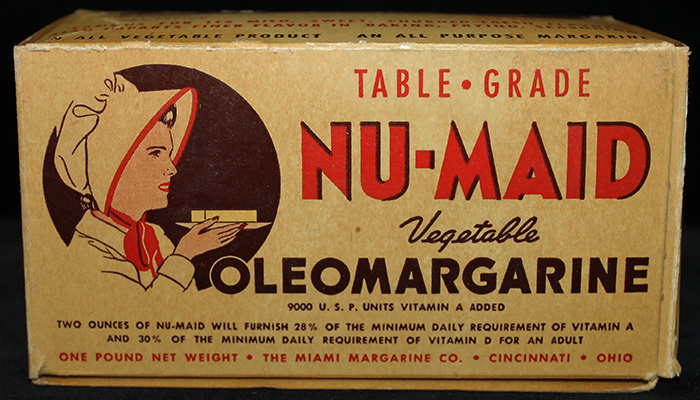How did they get approved for a mortgage?! How are they even employed?!?!?
They might have gotten their approval before getting roped in, or they might have gotten it during the time before the financial meltdown when bankers had no incentive to ever deny a mortgage request.
How are they breathing?
Through their mouth.
Even with the crayons in it?
Yefmp.
They got approved before the brain injury that made all this horseshit seem logical.
My guess is pre COVID.
Why do you assume they are employed?
To have a mortgage the must have had income. If they no longer has income it’s unlikely they’d still have a mortgage and the mortgaged house.
So, in order to even be attempting this bullshit they are either still earning income, probably through employment, or have only just lost that income and opted for a sovcit hail Mary.
It’s just as nuts as any letter, but this is the most clear and understandable version of this I’ve yet seen. You can clearly identify what they believe that makes them think this will work: “all debts are the responsibility of the United States”. This is the best version of this, with the fewest incantations, no spelling out grammatical errors (that I noticed; they’re usually illegible).
It’s quite nice, actually.
I was really surprised to see that they had four points, in a row, with consistent formatting. I went back to double check because I was sure that it’d be missing point three or something. This SovCit is oddly competent.
The sovereign citizen movement can be described as a form of witchcraft. They are ceremonies that people have convinced themselves have some sort of effect if performed correctly.
They feel more like a cargo cult to me. They’ve seen procedural law dramas and think that by doing the sorts of things people do on those shows they can arrive at the resolution they want.
What is a cargo cult if not a form of ceremonial magic?
That’s a very fair point.
a quarter is made of .9 oz of silver?
Nope lol. According to Wikipedia its nickle and copper:
Its current version is composed of two layers of cupronickel (75% copper, 25% nickel) clad on a core of pure copper.[2] With the cupronickel layers comprising 1/3 of total weight, the coin’s overall composition is therefore 8.33% nickel, 91.67% copper. Its weight is 0.1823 troy oz. or 0.2000 avoirdupois oz. (5.670 grams).
Official US Mint description:
https://www.usmint.gov/learn/coins-and-medals/circulating-coins/quarterQuarters minted before 1964 are indeed 90% silver. However, the weight is way off from sovcit’s testimony.
Edit: A word
To be fair, it could be a pre-1965 quarter. Those had silver in them. I don’t think .9 oz, but maybe one year?
A silver dollar contains 0.9oz silver.
A silver quarter is 0.225oz.
There you go, they’re not even right if it’s a silver quarter. Thanks.
Nah, these coins are minted for collection and investment purposes and are not meant to use as direct payment (although you can because they hold a nominal value). It doesn’t make sense for any government to use material that is 100 times more expensive than the value they want to attach to it.
Sovcit just payed of $0.25 of their debt with a $28 coin because they are incredibly smart.
That’s exactly why they stopped minting silver coins in the 1960s though. Because they started being worth more in silver than their value. Still true about pennies, I think.
There were actual coins made out of silver that are not considered bullion coins like Morgan Silver Dollar or the Peace Silver Dollar. Those were made for everyday use and they contained around 0.75 troy ounces of pure silver.
This leads me to believe that the 0.9 troy ounce coin is some sort of special minting because that would be a pretty heavy coin for such a low value (around 28g). But maybe times were just different back when the gold standard was still in effect, idk.
I’ll have to admit that I base my thought process almost entirely on my recent discovery that I actually possess a valuable coin and the bit of background reading after that discovery.
I’m pretty sure that the quarters weren’t that pure, I don’t know. I do know people were melting them down (or at least were suspected of melting them down, I don’t know if they actually were), so they changed the composition. My grandfather collected coins and I sort of vaguely remember all of this from him.
I do have a ton of silver dimes and quarters in a drawer though. I should probably just sell them because I was keeping them around as a ‘just in case’ thing but the value of silver is not exactly shooting up and I really don’t care about coin collecting beyond the design of coins in various countries being interesting from an artistic sense.
Quarters minted before 1964 are 90% silver, but even then the total weight is 0.1808 troy ounces per quarter. A quarter would have to be over five times as large in order to be composed of .9 oz of silver.
Now if sovcit wanted to do the bank right(!) here, he’d attach a .999 troy oz silver coin, such as a US Silver Eagle, which would set sovcit back about $40 or so. Postage would increase, if sovcits pay postage, because the envelope would need to be padded and the increased weight of the coin versus the quarter would increase rates. I did not do the math on that - someone else can.
No, no, you gotta think sovict.
Its a coin, that is silver in color, i.e a “silver coin,” that is .9 0z.
No, what the sovcit attached is called a bullion coin. They usually have a nominal value, so they are official legal tender and you can pay with them in a store, but their actual worth is basically the price of the precious metal they are minted from (+collector’s value for some coins) which is usually much higher. 0.9 troy ounces of pure silver are around $28.
It is the coin holder’s duty to liquidate the coin before payment, so the sovcit basically just scammed themselves and gave their coin away for the nominal value (although it will likely be returned as this letter will not be accepted for obvious reasons).
That’s not a bullion coin, it’s just a pre-64 quarter. It’s about $20 in silver, depending on spot price.
I collect coins, not silver, and these are not special in any way. I sell them for melt value to buy better coins.
This incantation will fail because they didn’t correctly refer to the coin as a “.9 troy ounce silver coin” every time. Also, they didn’t affix it with genuine horse glue.
Is this a new Magic The Gathering mechanic? Affidavit of Truth sounds a little redundant but ok.
Nah this one has to be a troll, there were no spelling errors lmao.
Debt* not dept.
I’m beginning to see this as the corporate fiction that everybody is a legal scholar who can read 10,000 words per minute is having some blowback.
Edit: I hate propose a problem without a solution so I think the fix would be something like “the top 10 contracts used by businesses and households should just be legislated into standard contracts and taught in school as part of curriculum”
Affidavit of Truth give me legal insight beyond that law!
🧠🧠🧠
Even if this was the correct amount of payment in silver. Would that even work as a means of payment?
Any company can take barter for their services if they wanted to.
They’d have to be pretty dumb to take a normal quarter as barter worth a whole mortgage instead of 0.25$ though.
Generally barter relies on the good being a similar value, whereas sovcit logic tries to force them to take terrible barter through the magical contract system america is beholden to, because obviously an all-encompassing contractual indentured servitude will have easy cheat codes to break out and get paid while you do.
They are hoping some employee of the lender pockets the coin that they offered for discharge of the debt, thereby accepting the “offer”.
I don’t think that’s the goal but if it is at least make it a $20 bill or something. 25 cents isn’t enough of a bribe to get seated at a restaurant more quickly, much less erase hundreds of thousands of dollars in debt.
The debt is in currency. The coin is not offered as a token of currency, but as a piece of silver. It’s not being offered as a bribe.
“I’ll give you this mystery box in exchange for discharge of all past debts I owed you”. If you accept the mystery box, you cannot claim the debts. If the bank knowingly accepts and deposits the “silver coin” under these conditions, the debt would theoretically be discharged.
Of course, making an offer in this way is explicitly prohibited under postal regulations: The recipient is under no obligation to abide by the terms of such an offer, and is free to keep the coin without it constituting acceptance. The bank is under no obligation to return the coin.
How does two 10oz silver coins equal one .9oz coin equal one US quarter?
deleted by creator











